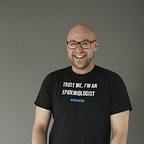The Pill Don’t Kill
Why the scary headlines about breast cancer are wrong
The contraceptive pill is in the news again. Like always, it doesn’t look good.
Hundreds of stories have popped up from news sites the world over screaming that the pill is absolutely, definitely, 100% going to give you breast cancer and make you die.
For the 90-odd percent of women who have taken the pill at some point in their lives, this is pretty scary stuff. Breast cancer isn’t trivial, and the 20% increase that everyone is talking about sounds terrifying.
Even though there’s not much to worry about at all.
Cancerous Messages
I’m talking, of course, about the new Big Scary Study done in Denmark. Basically, the researchers looked at a truly enormous sample of women — 1.8 million, which is loads — and compared the risk of breast cancer in women who were on the pill and women who weren’t. They found that women who used the hormonal contraceptive pill were 20% more likely to be diagnosed with breast cancer than those who had never used it.
It was a brilliant study. While we did already have a decent idea about the risk of breast cancer and taking the pill, this study provides very strong evidence that anyone taking the pill does raise their risk of the scary disease.
Sadly, many news articles missed a very important point.
These results mean almost nothing to your health at all.
Big Scary Study
So, yes, if you take the pill, you are 20% more likely to get breast cancer. Scary.
But what does this actually mean?
In the study sample, there were 1.8 million women, and using some basic maths the researchers calculated the number of person-years of this group. Person-years are just the number of years lived by people in the study: for example, if someone was part of the study for 18 months, they would count as 1.5 person-years.
Next, the researchers split the women into two groups — those who took the pill and those who didn’t. They then calculated the rates of breast cancer in each group. For women who had never taken the pill, the rate was 55 cancers per 100,000 person-years, or 0.055%. For women who took the pill, the rate was 68 cancers per 100,000 person-years, or 0.068%.
The researchers then worked out the relative risk difference. This is the risk of one thing happening relative to another— in this case, 0.068/0.055 = 1.2, or a 20% increased risk. However, you may have noticed something in those numbers above. The absolute risk — the difference in risk between two things actually happening — is tiny: an 0.013% increase.
To put it another way, this study shows that for every ~8,000 women who take the pill, one woman who would otherwise have been healthy will get breast cancer.
Sadly, that doesn’t make for nearly as good headlines.
Individuality
This is what’s known as individual versus population risk. For you, the individual, the risk increase of getting breast cancer from taking the pill is incredibly negligible. Unless you have a history of breast cancer in your family, chances are you don’t have to worry.
On the other hand, for people working in population health, these findings are really important. Millions of women take the pill each day. Multiply that 1 in 8,000 breast cancer increase by millions and you get thousands of extra cases of breast cancer each year. So for researchers, policy makers, and population health doctors, it’s really important information. The population risk is not trivial, and it might need new regulation, or funding into the development of a safer pill. Big studies like this are important because they identify small risks that at a population level are actually really important. Even 0.013% can be a big problem if enough people take a medication.
But to you? The person actually taking the pill?
These findings don’t mean all that much.
Ultimately, you may be at a higher risk of getting breast cancer, but by taking the pill you also reduce your risk of ovarian, endometrial and colorectal cancers. You also reduce your risk of getting pregnant, which itself carries quite a few health risks*. There are any numbers of good things the pill does, and weighing them against the possible side-effects takes a lot of knowledge and understanding.
In other words, taking the pill is a complicated decision. If you’ve got a history of breast cancer in your family, or even if you’re just worried, it’s worth bringing up with your doctor. That’s what they’re there for, after all.
But don’t believe the hype.
The pill isn’t as scary as some journalists would have you believe.
If you liked this story, or are just a fan of contraception, let me know with the clap button below! You can also follow me on twitter and facebookfor regular updates, or medium for my weekly blog and longer pieces.
*For example, babies.
